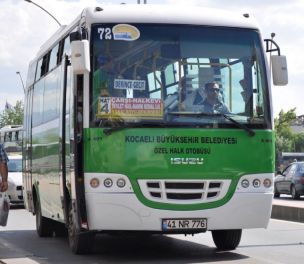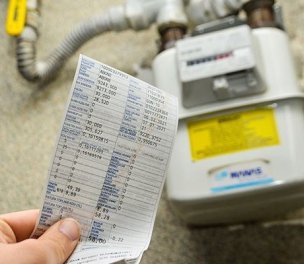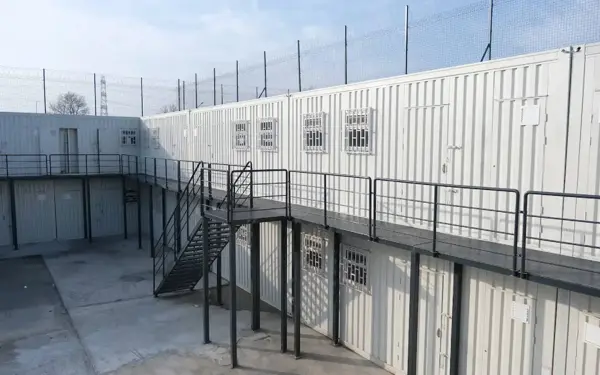Click to read the article in Turkish
İstanbul, where nearly 20 percent of Turkey's population of 85 million lives, saw two major price hikes in the last two days.
First, tap water prices increased by 29 percent. The household tariff, which 86 percent of İstanbulites use, was raised from 5.56 lira per cubic meter to 8.33 lira. With the Humanitarian Right to Water, according to which 0.5 cubic meters of every 2.5 cubic meters of water should be provided for free, the water price per cubic meter was set as 7.22 lira (1 US dollar = 14.75 Turkish lira).
The public transport fares were raised by 40 percent. Full monthly subscription fee rose from 430 to 602 lira, and student fee rose from 78 to 109 lira.
The price of a full electronic ticket rose by 2.19 lira to 7.67 lira, and the transfer fee became 5.48 lira. The minimum taxi fare rose from 20 to 28 lira, the minimum dolmuş fare rose from 2.75 lira to 5.25 lira, monthly school bus fee rose from 396 lira to 554 lira, and the "taxi-dolmuş" fare rose from 7.25 lira to 10 lira.
In the Marmaray commuter rail line, the minimum fee rose from 5.48 lira to 7.67 lira and the maximum fee rose from 12.12 lira to 16.97 lira.
For whom should we raise the prices?
This is the level of prices in short. Both hikes were discussed at the İstanbul Water and Sewerage Administration (İSKİ) General Assembly and the Transportation Coordination Center (UKOME) meetings multiple times. The topics of discussion were not different from those in Turkey's politics. The local government was a reflection of the National Assembly.
When a price hike for tap water was discussed at the İSKİ General Assembly for the first time on February 16, the İSKİ wanted a 50 percent increase. The ruling Justice and Development Party (AKP) members said "yes" to a 25 percent increase. At the session, members of the AKP and the Republican People's Party (CHP), which runs the İstanbul Metropolitan Municipality (IMM), walked over each other. At the end, the proposal for a price increase was rejected by a majority vote.
The AKP Group Deputy Chair Tevfik Göksu said, "By rejecting their proposal, we did not let İstanbulites face such a big hike." However, he ignored price increases in almost everything, from fuel to tomatoes, from electricity to bread, from oil to flour, which affected entire Turkey. He did not say anything about the central government. He did not
On the other hand, Ekrem İmamoğlu, the mayor of İstanbul, said not increasing prices was "evil against İstanbul." He said it was because of the AKP's "anger because of losing İstanbul" in the 2019 local elections.
A few days later, İSKİ General Director Rauf Mermutlu talked about the issue. He said İSKİ "has a deficit of 500 million lira every month." He said diesel prices increased by 241 percent and electricity prices increased by 239 percent in a year, which caused the operating expenses to increase by 203 percent. He complained that water prices did not change in the same period.
He kind of threatened, saying, "If there is no raise, investments will be delayed." However, water prices were increased by 17.80 percent on December 15.
Then the proposal was submitted to the İSKİ General Assembly again and passed; tap water prices rose by 29 percent.
No hikes for the municipality
The other topic is transportation. There were bigger arguments than those at the İski General Assembly. Proposals were rejected two or three times. But the reason for the rejection was different.
In fact, what prepared this period was an amendment on February 19, 2020. The Ministries of Interior and Environment changed the number of members of the UKOME with regulations they issued.
The number of representatives from public institutions increased, and municipal members became a minority. Thus, price increases could be delayed at the latest UKOME meeting for some time. However, both representatives of private public transport operators and the municipality wanted a hike.
IMM Secretary-General Can Akın Çağlar said they had made a subsidy of 15 billion lira available for public transportation in İstanbul not to be interrupted and a price increase was needed for the continuation of the services. According to Çağlar, the daily subsidy had reached 27 million lira.
IMM Public Transportation Services Manager Barış Yıldırım also said that since the last hike was made on December 24, 2021, there had been a 45-50 percent increase in fuel prices and a 53 percent increase in total costs.
Metro İstanbul Director-General Özgor Soy said their electricity bill was 19 million lira in January 2021, 63 million lira in February 2022 and over 70 million lira in March. "With these costs, it is impossible to continue public transportation in İstanbul."
It wasn't only the IMM who wanted a hike. İstanbul Taxi Chamber Chair Eyüp Aksu, TURYOL ferry company's board chair Yunus Can, İstanbul Transporters Union Chair Turgay Gül, Private Public Transportation Bus Owners and Operators' Chamber Chair Göksel Ovacık explained how difficult their situation was at the UKOME meeting.
High costs were the only thing on their agenda. Their only agenda was cost. Fuel, foreign exchange rates, maintenance of vehicles, spare parts, employee costs. They explained all their problems.
The objection to a hike came from Serdar Yücel, the 1st Region Director of the Ministry of Transportation and Infrastructure. He made a statement that can be summarized as "Let private public transporters increase prices but not the municipality." He mentioned the public importance of transportation. However, the Turkish State Railways (TCDD), whose board of directors include Yücel as well, filed a suit against a UKOME decision to cancel "transfers" between the municipal public transport and the Marmaray line.
The system allowing cheaper commuting was changed overnight. A few months later, Yücel rejected a price hike for "public interest."
All in all, the hike was somehow approved in the last meeting. No one cared about the public and the people's economic power. What was done was nothing but politics. No one told the IMM that it could create resources to subsidy public transport. They didn't request support from the central government about this issue.
Ramifications
Let's make a calculation. Currently, the minimum wage is 4,252 lira. Buying a monthly subscription to go to school or work every day is the most plausible thing to do. Full subscription is 602 lira and student subscription is 109 lira.
If one is lucky enough not to be unemployed, a minimum wage earner must spend 15 percent of their monthly income for transportation in İstanbul. A university student receiving a scholarship or a loan from the Student Loans and Dormitories Institution (KYK) has to allocate 12.85 percent of their income of 850 lira to transportation.
For tap water, a minimum wage earner has to spend 3 percent of their monthly income and a student has to spend 11 percent of their loans or scholarships.
Both are of vital importance to the people. On the one hand, there are those who ignore inflation and expensiveness and say that "we should not hike the prices," on the other hand, there are those who see these and view hikes as normal.
However, what is abnormal in both cases are the hikes. Maybe they should be free in accordance with the principle of the social state. While we need to discuss this, what is focused on are politics, putting institutions in a difficult position, and the upcoming elections. What is not thought about is the people.
The result? It is one hike after another and high living costs. A lower standard of living and more difficult days... And maybe hunger and poverty. We are waiting to see when the next hike will come. We object to these according to our political orientations. (HA/VK)





.jpg)






